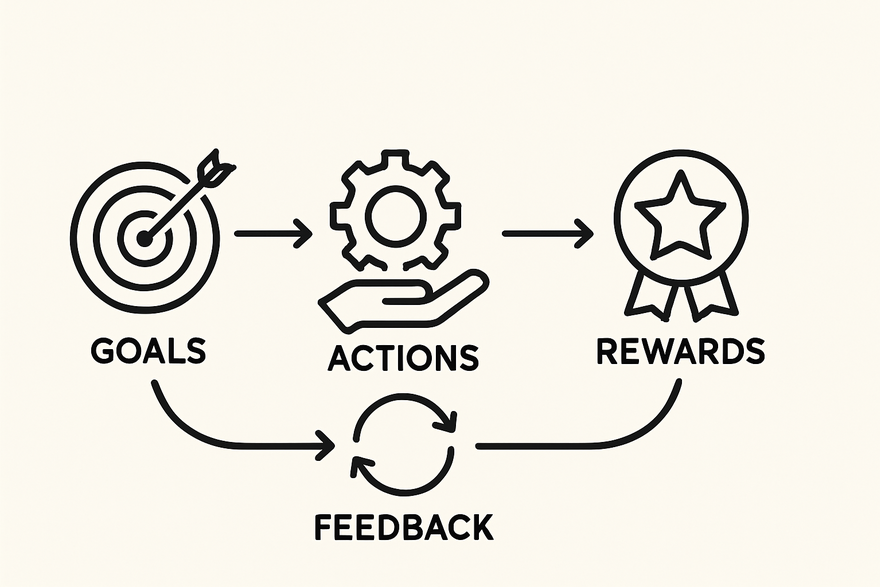Why Real Change Requires New Reward Systems

“We are all driven by reward systems.”
I was recently reminded about the power of reward systems in a Campfire conversation with Rich Sheridan, founder of Menlo Innovations. Rich shared how most organizations are often unconsciously designed around deeply embedded reward structures. Whether it's the adrenaline rush of checking off tasks, the dopamine hit of inbox zero, or the quiet pride of being seen as the one who "always comes through," these systems are constantly shaping our behavior, attention, and ultimately, our culture. The problem is that we often try to change outcomes without changing the underlying rewards.
We claim to want more collaboration, yet our systems still reward individual achievement. We say we care about well-being, yet we silently applaud the person who sends emails at midnight. We promise ourselves we’ll slow down and prioritize depth, but our brains have been conditioned to chase speed, attention, and validation. If we want to create real, sustainable change – in ourselves or in our organizations – we have to rewrite the reward script. Here’s the thing: that script won’t rewrite itself.
We can’t expect to simply “decide” to behave differently. Willpower is a fragile force when it’s working against years of reinforcement. It may get us started, but it won’t transform us. What does? Consciously designing a new reward system, one aligned with the values and behaviors we want to nurture.
The Shift from Productivity to Presence
Years ago, I found myself caught in the trap of visible productivity. If I wasn’t producing something tangible, measurable, or impressive, I felt behind. My worth, it seemed, was tied to what I could show. And I saw how that mindset subtly shaped the teams I worked with; we were always reaching for the next deliverable, the next proof of progress. The implicit reward? Speed, output, and responsiveness. But what I longed for was something else: depth, spaciousness, and meaning.
So, I made a radical pivot. I started rewarding reflection. I shifted team conversations from “What did we get done?” to “What did we learn?” I put “thinking time” on the calendar, not as an indulgence, but as a necessity. I created post-session rituals, such as walks without my phone, and I began celebrating questions – really good, expansive, soul-stirring questions – as much as I did answers.
These changes seemed small, almost too small to matter. But over time, they created a new rhythm. Conversations slowed and deepened. Ideas evolved. Trust grew. And ironically, outcomes improved not because we were chasing them harder, but because we were tending to the soil, not just the harvest.
Here’s what I have come to believe:
Changing behavior without changing rewards is like planting seeds in concrete.
If we want teams to be more innovative, we must reward exploration, not just flawless execution.
If we want leaders to be more present, we must celebrate stillness and listening, not just urgency and decisiveness.
If we want our own leadership to be more sustainable, we must learn to value internal wins, such as clarity, courage, and calmness, as much as external ones.
If we want our organizations to be more human, we must stop rewarding the kind of effort that leads to burnout and disconnection.
I will leave you with a question I have been pondering, one I often pose to clients and teams at inflection points: What is the current reward system, whether spoken or unspoken, that drives your choices? And what might become possible if you rewrote it? This is an invitation, not to hustle harder, but to lead more consciously. To design systems of reinforcement that align with what truly matters. To create cultures that elevate curiosity, wholeness, and trust. Because the outcomes we see are not just the results of strategy, they are the byproduct of what we’ve been taught to chase. And if we want a different kind of world, it starts by rewarding a different kind of success.


0 comments
Leave a comment
Please log in or register to post a comment